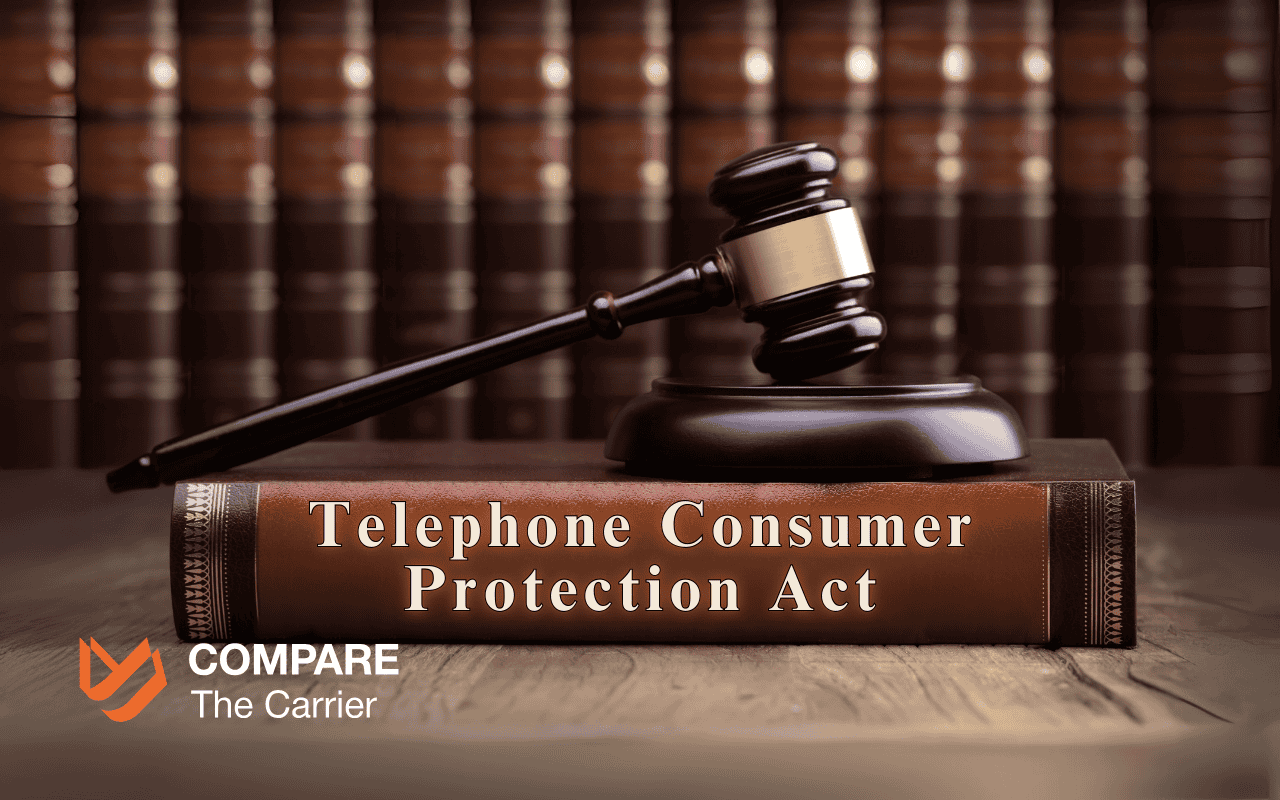The auto transport industry is more reliant than ever on digital communication tools. Voice over Internet Protocol (VoIP) services have quickly become the go-to for brokers who need efficient, flexible, and cost-effective options to stay connected with customers. However, with convenience comes responsibility: auto transport brokers must ensure their communications align with the requirements of the Telephone Consumer Protection Act (TCPA).
Despite the title referencing TSPA, the primary regulation governing telemarketing practices is the TCPA (Telephone Consumer Protection Act). By understanding TCPA requirements, particularly for VoIP calls, auto transport brokers can avoid legal pitfalls, hefty fines, and reputational damage.
This is where Compare The Carrier enters the picture. As a platform specializing in shipping, freight, and moving quotes, we serve as a trusted partner to the auto transport industry—helping brokers navigate the intricate maze of compliance, including recent updates to our vehicle shipping form that make it easier to meet TCPA standards.
This guide covers the key aspects of TCPA compliance for VoIP, outlines best practices, delves into the consequences of non-compliance, and details how your business can stay on the right side of the law.

It’s a common misconception that simply having a customer’s phone number gives you free rein to contact them. But in the world of TCPA compliance, things aren’t that simple. Failing to obtain proper consent before making marketing calls or sending texts can lead to hefty fines and legal trouble. Don’t let your business get caught off guard.
Understanding the TCPA Compliance Landscape in 2026
The Telephone Consumer Protection Act (TCPA) has been a cornerstone of consumer protection since 1991, and its relevance only continues to grow in the digital age. For auto transport brokers, especially those leveraging the power of VoIP calls, understanding the TCPA is absolutely paramount for telemarketing compliance.
Let’s break down what you need to know about the TCPA landscape in 2026:
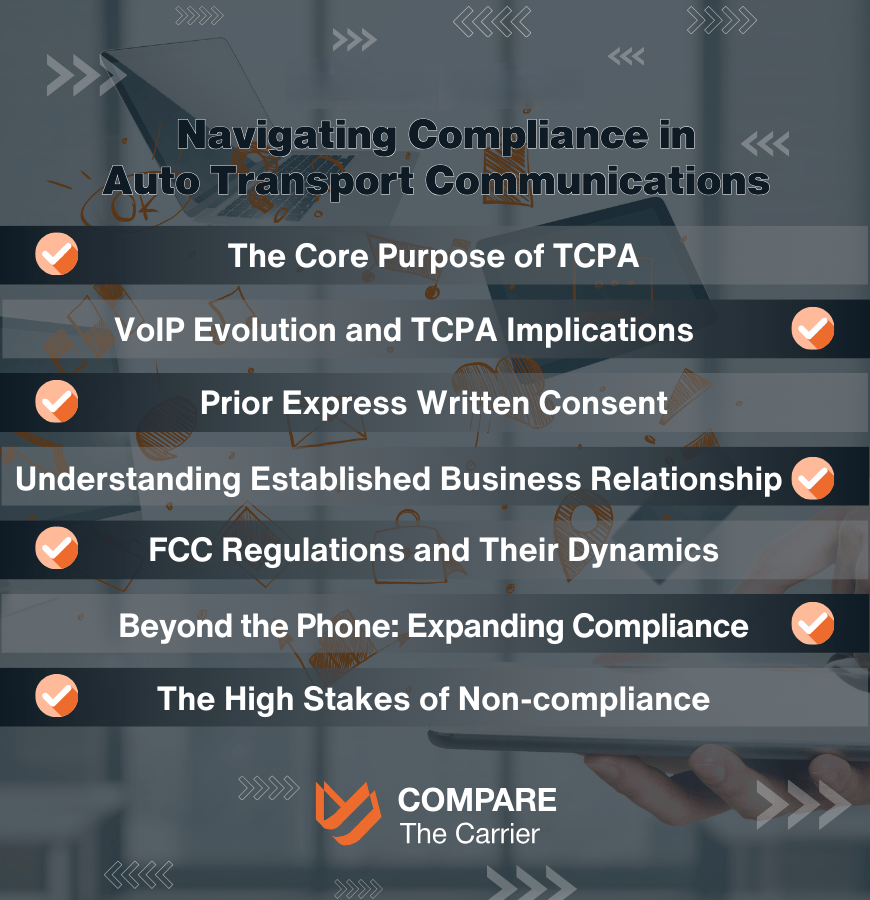
In early 2026, the FCC’s One-to-One Consent Rule aimed to curb telemarketing abuse by requiring individual consent for each seller contacted through platforms like Compare The Carrier. This meant consumers would need to provide separate consent for each auto transport broker they wanted to connect with, potentially impacting lead generation for brokers.
However, the rule was vacated just before its implementation, following a legal challenge that deemed it exceeded the FCC’s authority under the TCPA. While the rule is no longer in effect, it highlights the ongoing efforts to balance consumer protection with efficient business communication in the auto transport industry.
TCPA Compliance and VoIP Calls: A Step-by-Step Guide for Auto Transport Brokers
Navigating TCPA compliance with VoIP calls can feel like walking a tightrope. One wrong step and you could face serious consequences. But don’t worry, this step-by-step guide will provide auto transport brokers with the knowledge they need to stay on solid ground.
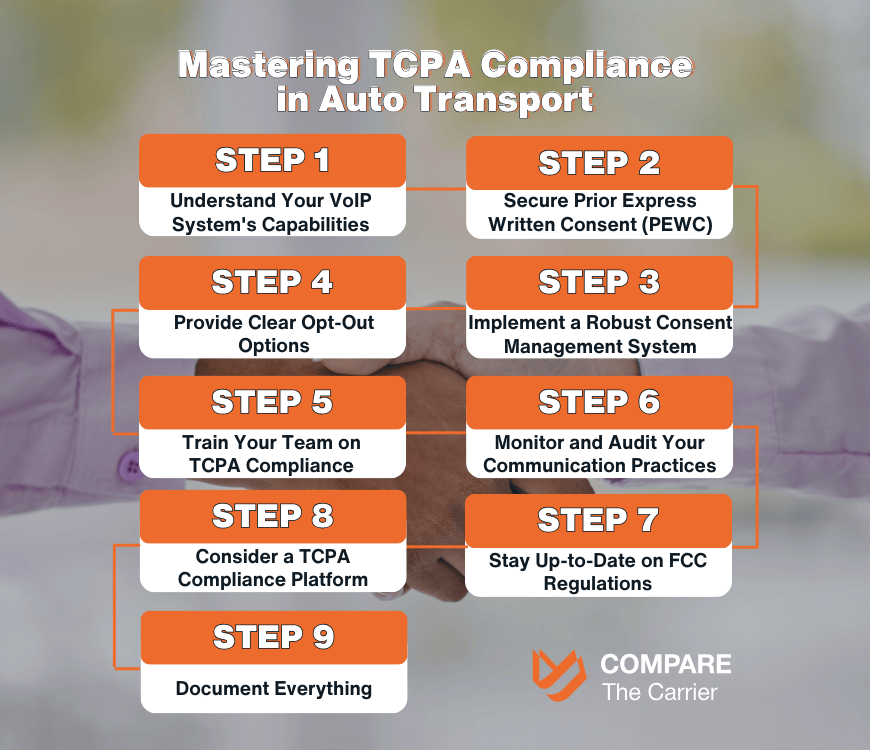
Step 1: Understand Your VoIP System’s Capabilities
Not all VoIP systems are created equal. Some have features that automatically classify them as an Automatic Telephone Dialing System (ATDS) under the TCPA, while others don’t. It’s crucial to understand your system’s capabilities. Does it have the capacity to store or produce numbers to be called randomly or sequentially? Can it make calls without human intervention? These are key questions to ask. If your system has ATDS functionality, even if you don’t actively use it, it will be treated as an ATDS.
Step 2: Secure Prior Express Written Consent (PEWC)
This is non-negotiable for marketing calls to cell phones made with an ATDS. You must have PEWC before making such calls. Here’s what that entails:
Step 3: Implement a Robust Consent Management System
Managing consent is critical. You need a system to:
Step 4: Provide Clear Opt-Out Options
Every communication you send, whether it’s a call or a text, must include clear and conspicuous opt-out instructions. For text messages, a simple “Reply STOP to unsubscribe” is often sufficient. For phone calls, you should verbally state the option to opt-out.
Step 5: Train Your Team on TCPA Compliance
Your staff needs to be well-versed in TCPA regulations and your company’s compliance policies. Equipping your team with the knowledge and skills to handle logistics sales effectively is crucial, especially in a regulated environment like auto transport. Everyone making calls or sending texts on behalf of your company should understand the rules and consequences of non-compliance.
Step 6: Monitor and Audit Your Communication Practices
Regularly review your call logs, text messages, and consent records to identify potential compliance issues. Conduct periodic audits to ensure your practices align with TCPA guidelines.
Step 7: Stay Up-to-Date on FCC Regulations
The TCPA landscape is constantly evolving. Stay informed about any updates to FCC regulations and adjust your practices accordingly. Subscribe to FCC updates or work with a legal professional specializing in telecommunications law to stay ahead of the curve.
Step 8: Consider a TCPA Compliance Platform
Several platforms offer tools and services to help businesses manage consent, track calls, and ensure compliance. These platforms can be a valuable asset, especially for auto transport brokers who make a high volume of calls.
Step 9: Document Everything
Meticulous record-keeping is your best defense in case of a TCPA complaint. Document your consent processes, call logs, training materials, and any other relevant information.
By following these steps, auto transport brokers can confidently navigate the complexities of TCPA compliance and VoIP calls, ensuring their telemarketing practices are legal, ethical, and effective.
Compare The Carrier’s Updated Vehicle Shipping Form: Your TCPA Compliance Advantage
At Compare The Carrier, we’re not just about connecting customers with auto transport brokers; we’re about empowering brokers with the tools they need to thrive in a complex regulatory landscape. Our updated vehicle shipping form is designed with TCPA compliance in mind, offering several key advantages to help you stay on the right side of the law and build trust with your customers.
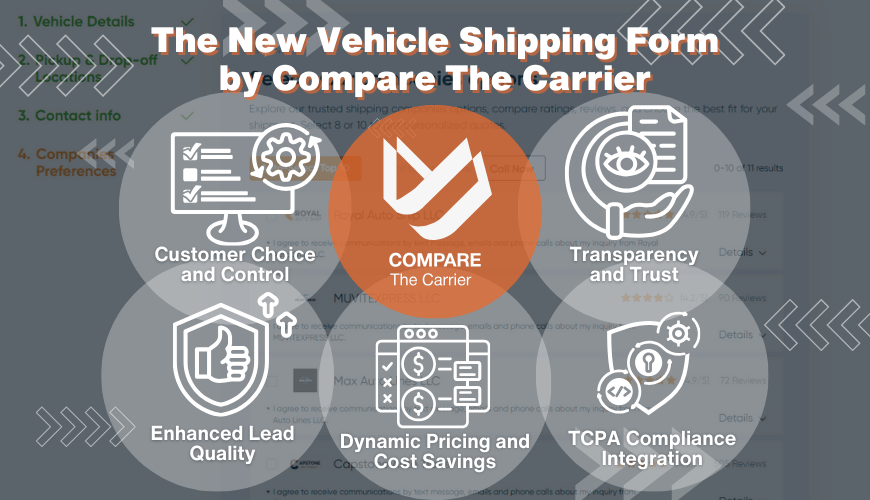
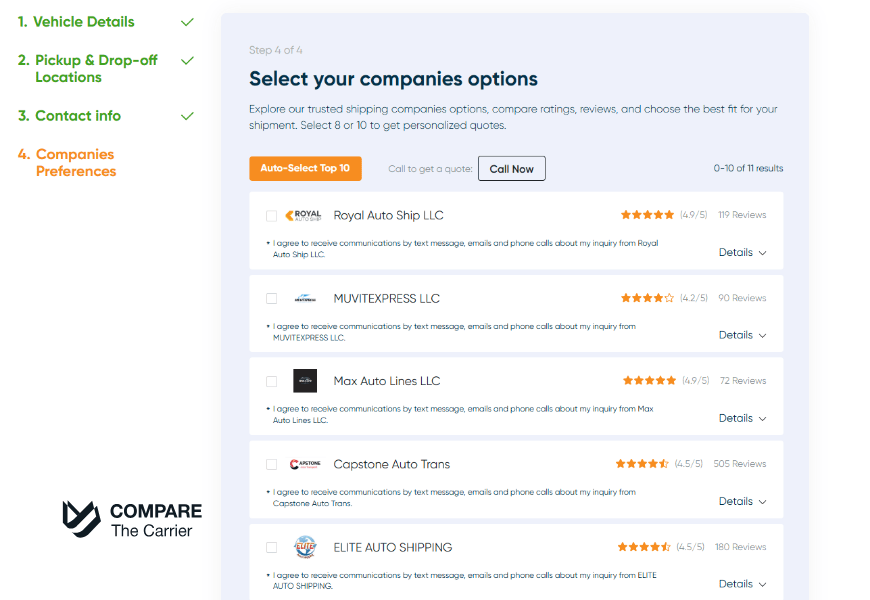
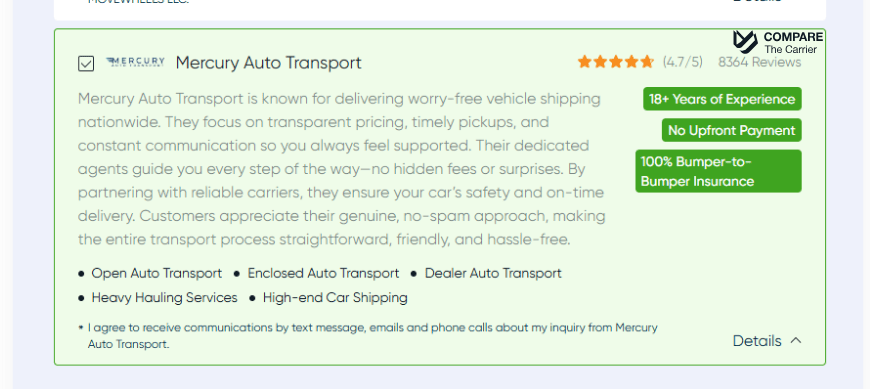
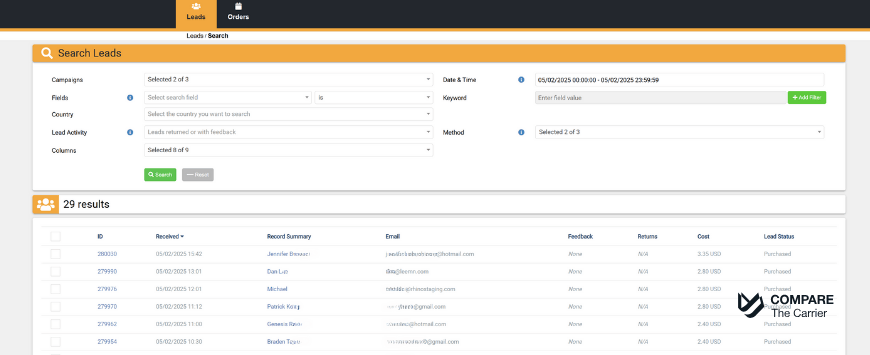

Our form acts as a bridge between your business and TCPA compliance, ensuring you’re building your customer base on a foundation of transparency and trust. To further amplify this, inbound marketing techniques can help auto transport brokers attract more clients naturally, increasing both lead volume and ROI.
Best Practices for TCPA Compliant Communication in the Auto Transport Industry
Staying ahead of the TCPA game requires more than just understanding the rules. It’s about weaving compliance into the fabric of your communication practices. Here are some best practices to keep your auto transport business running smoothly and legally:
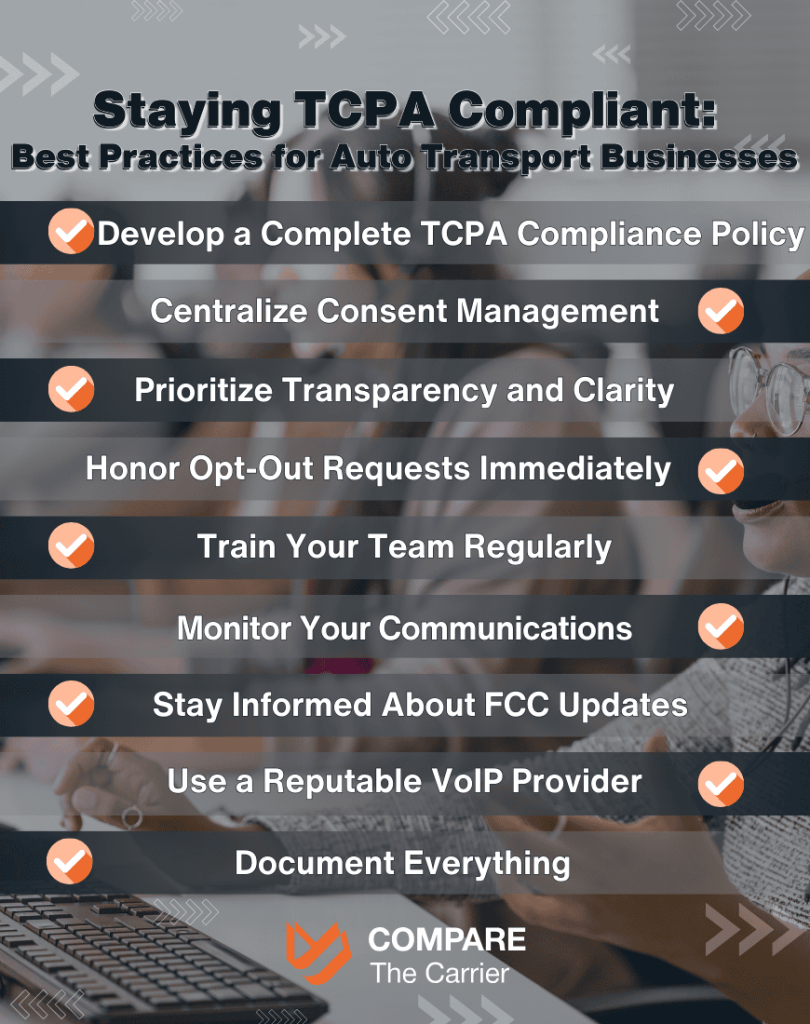
By incorporating these best practices into your communication strategy, you can create a culture of compliance within your auto transport business. This will not only protect you from legal risks but also enhance your reputation and build stronger relationships with your customers.
Navigating the Gray Areas: Shady Schemes and Ethical Telemarketing Compliance
In the complex landscape of TCPA compliance, auto transport brokers using VoIP need to clearly distinguish between legitimate marketing techniques and unethical practices. This section outlines potential pitfalls and emphasizes ethical logistics marketing strategies to ensure compliance without compromising on effective communication.
Key Practices for Ethical Telemarketing and Compliance
Avoid Caller ID Spoofing:
Unethical: Manipulating caller ID to disguise the call’s origin.
Ethical Strategy: Always clearly disclose your identity and the call’s purpose at the start, maintaining transparency.
Example: The FCC’s record fine of $225 million in 2019 against a company for caller ID spoofing underscores the importance of honesty in caller information.
Manage Offshore Call Center Operations:
Unethical: Using offshore centers to sidestep TCPA regulations.
Ethical Strategy: Ensure offshore centers adhere to TCPA standards as if they were U.S.-based, maintaining responsibility for compliance.
Guidance: Familiarize yourself with the TCPA’s reach, applicable regardless of the call center’s location.
Handle Consent with Care:
Unethical: Reusing initial consent for multiple campaigns without additional permissions.
Ethical Strategy: Obtain specific, explicit consent for each marketing campaign and document all consents meticulously.
Best Practice: Implement systems to manage and update consumer preferences promptly, with an easy opt-out process as accessible as the initial consent (details at National DNC Registry).
Regular Audits and Legal Consultation:
Strategy: Regularly review and audit telemarketing practices and consent records to ensure ongoing compliance.
Legal Edge: Engage with legal experts who specialize in TCPA to keep up with the latest regulations and ensure your marketing strategies comply.
Unethical lead generation practices, like purchasing unverified lists, can backfire significantly. To avoid the pitfalls of unreliable lead providers, brokers should focus on high-quality lead generation strategies and platforms vetted for compliance.
For auto transport brokers, ethical compliance in telemarketing not only minimizes the risk of legal repercussions but also builds long-standing trust with clients. By steering clear of deceptive practices and embracing transparency, businesses can effectively manage their telemarketing efforts while adhering to TCPA standards.
Conclusion

The auto transport industry is built on communication, and in today’s digital age, that communication increasingly relies on VoIP technology. But with the convenience and efficiency of VoIP comes the responsibility of TCPA compliance. Auto transport brokers who prioritize compliance are not just protecting themselves from legal headaches; they’re building a foundation of trust with their customers.
By understanding the TCPA landscape, implementing best practices, and utilizing tools like Compare The Carrier’s updated vehicle shipping form, you can confidently navigate the complexities of telemarketing compliance. Remember, TCPA compliance is not a one-time task; it’s an ongoing commitment to ethical and responsible communication practices.
At Compare The Carrier, we’re dedicated to supporting the auto transport industry.
Our platform is designed to help you connect with customers, generate leads, and grow your business while adhering to the highest standards of compliance.
FAQ
What is the main difference between the TCPA and the Do Not Call Registry?
The TCPA is a broader law that restricts telemarketing practices, including robocalls, texts, and faxes, while the National Do Not Call Registry allows consumers to opt out of receiving telemarketing calls. While registering numbers on the Do Not Call list is important, it doesn’t cover all the provisions of the TCPA, especially those related to express written consent and VoIP calls.
How long does prior express written consent last?
There is no specific expiration date for properly obtained consent. However, it’s a good idea to revisit your overall marketing strategy, including reviewing and refreshing consent practices, as part of annual updates to marketing and web design.
How can Compare The Carrier Digital Agency help me with TCPA compliance?
Compare The Carrier Digital Agency offers a range of services to help auto transport brokers achieve and maintain TCPA compliance. This includes assistance with updating your website’s forms and consent language, developing compliant telemarketing scripts, and providing guidance on best practices for communication.
What is the best way to handle a TCPA complaint?
If you receive a TCPA complaint, it’s important to take it seriously and respond promptly. Review the complaint carefully, gather any relevant documentation, and consult with an attorney specializing in TCPA law.
Addressing complaints efficiently can also be tied to optimizing your operational framework. From better CRM usage to choosing the right digital marketing partners, enhancing operational efficiency can prevent issues.
How can I generate more leads while remaining TCPA compliant?
Efficient lead generation and ROI maximization are possible when compliance is built into the strategy.
